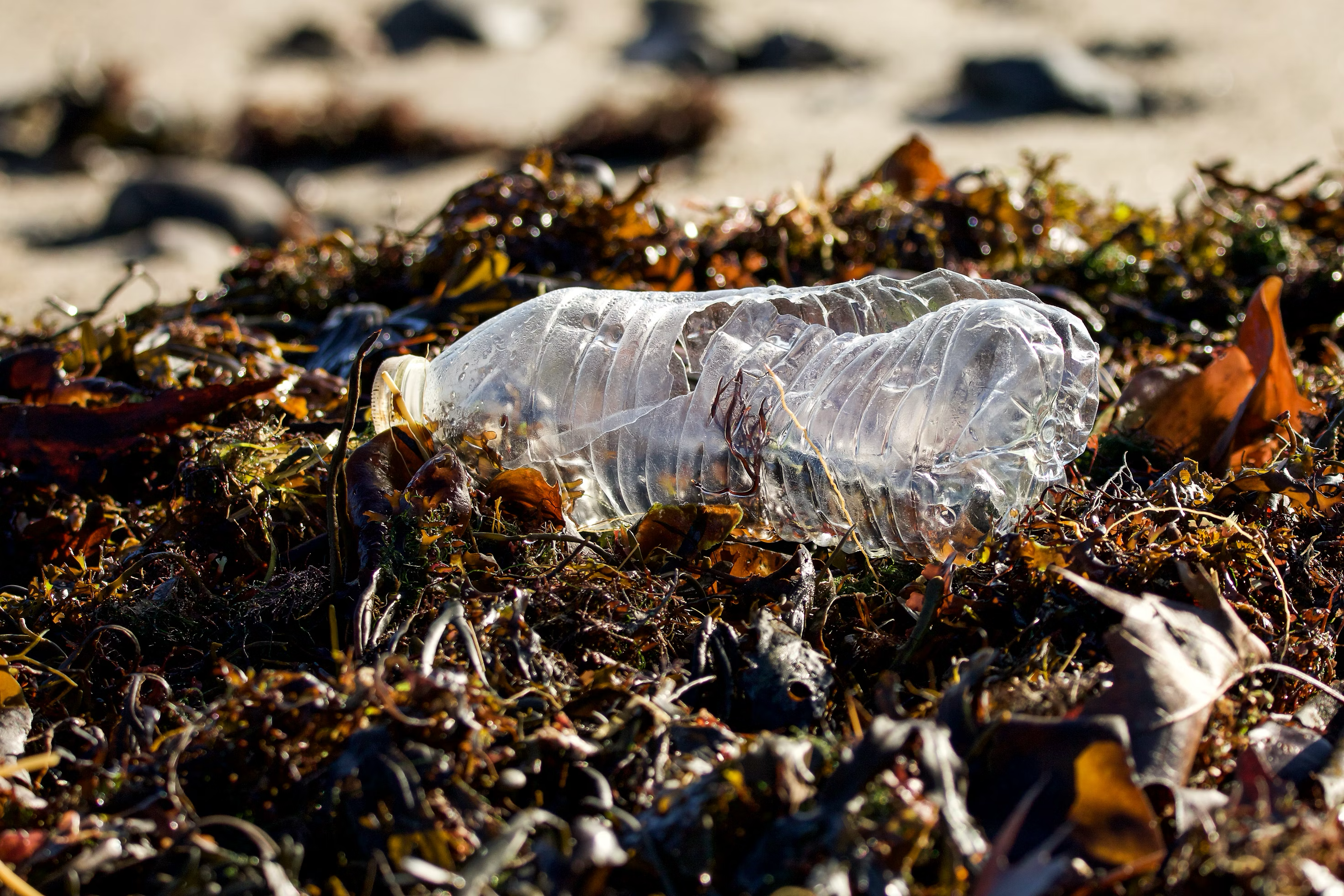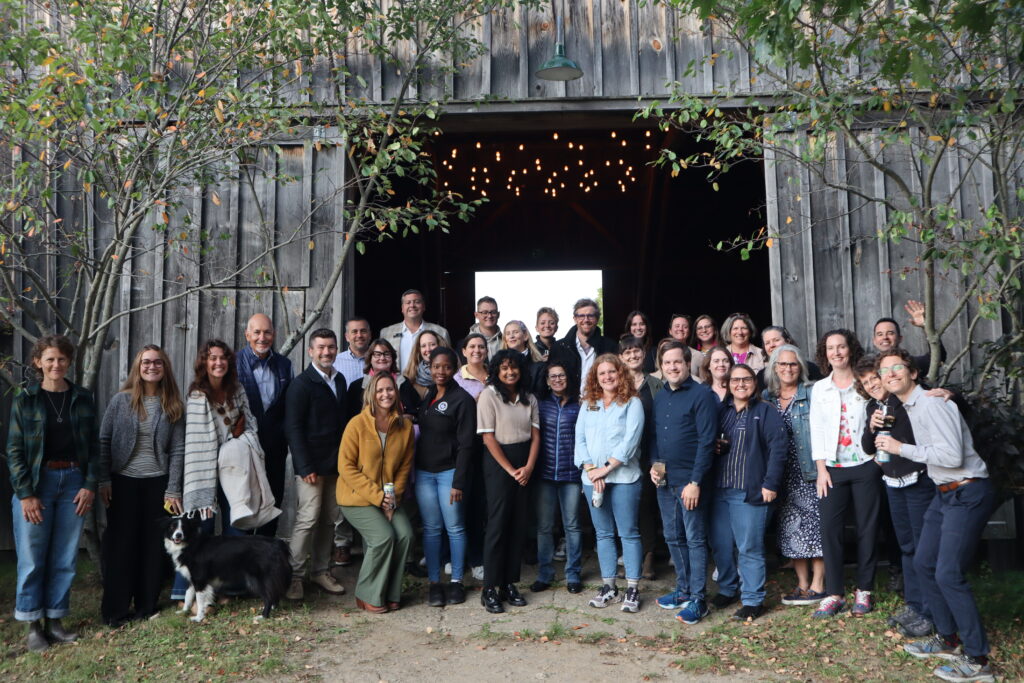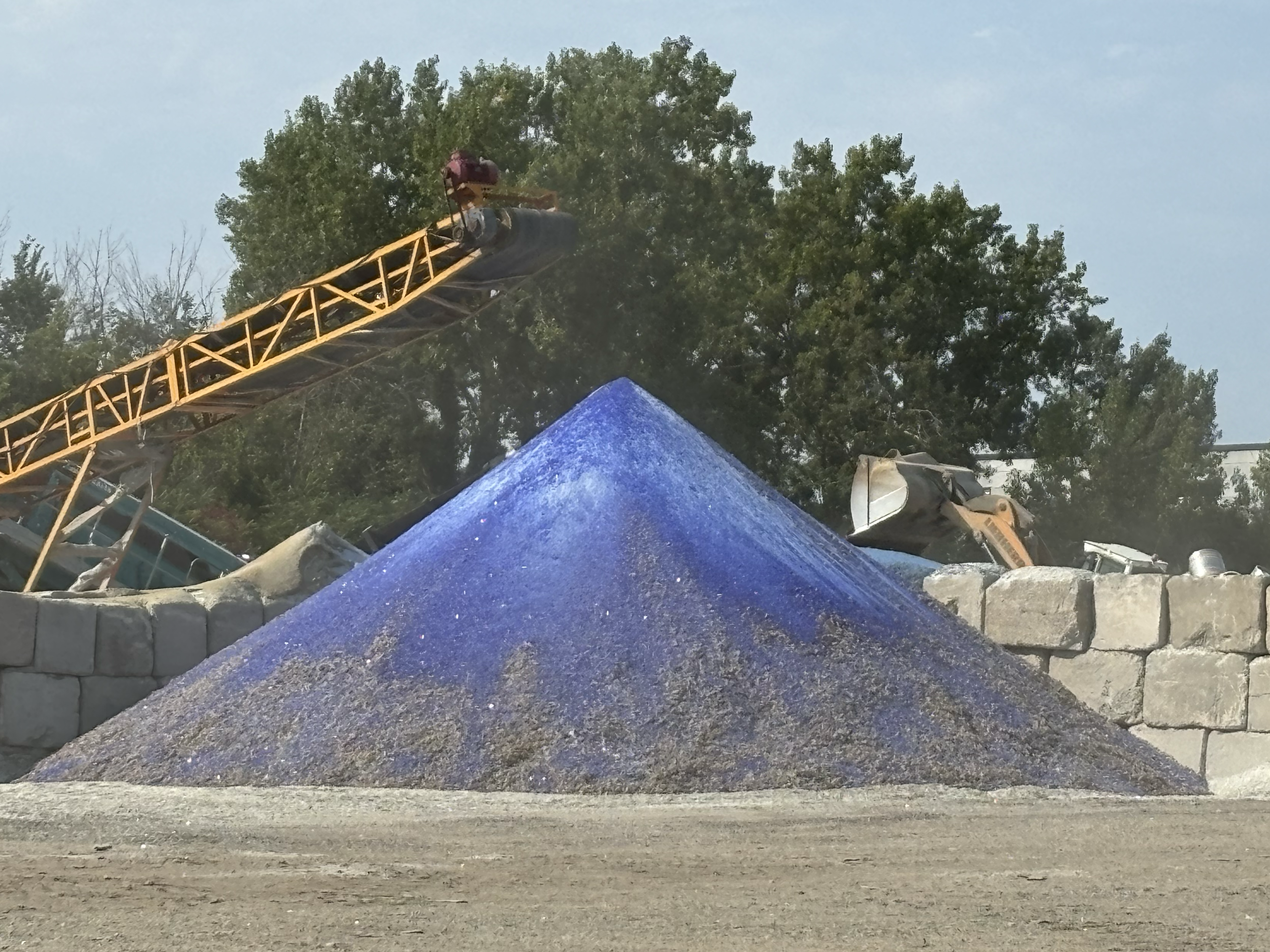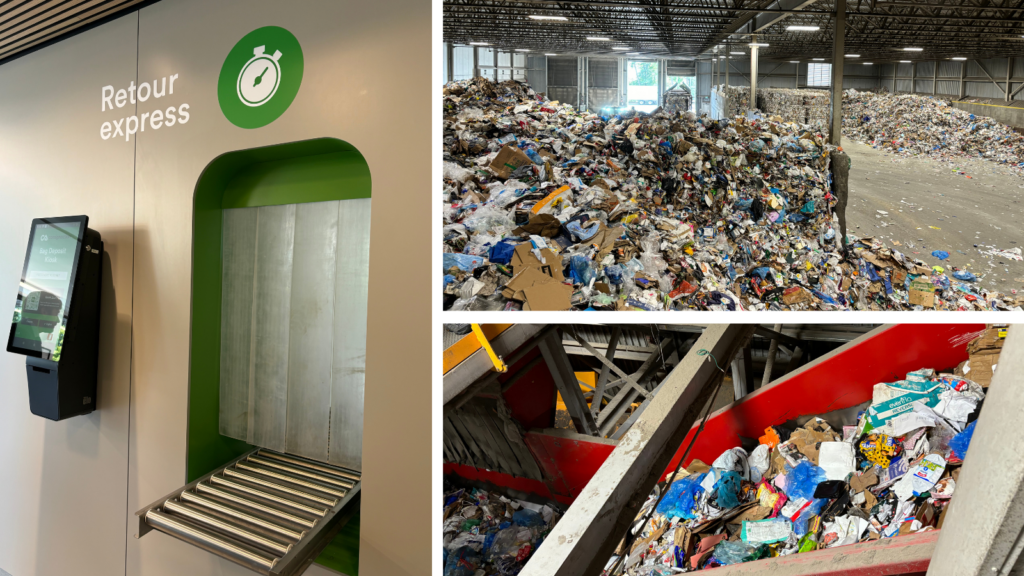
Blog
Convening Legislators from 10 States Around Plastic Pollution Practices in the Northeast
October 11, 2024
On September 10–13, legislators gathered in Portland, Maine to participate in The Ocean Plastic Leadership Network’s 2024 Atlantic Northeast Technical Expedition – a three-day trip from Portland to Montreal, Canada. Twelve legislators and staffers from 10 states gained insights into recycling and material management while learning about best practices for extended producer responsibility (EPR) and deposit return system (DRS) policies.
Participants gathered in Portland for a welcome dinner, which included a fireside chat between The Recycling Partnership’s Dylan de Thomas and California Senator Ben Allen’s Chief of Staff Tina Andolina on the process of passing EPR in California (SB 54) and the important role of stakeholders.
Day 1: September 11
The first day of the tour began with a context-setting roundtable led by three legislators who sponsored Maine’s first-in-the-nation EPR legislation – Senator Richard Bennett, Senator Nicole Grohoski, and Senator Stacy Brenner.
During the roundtable, legislators shared their favorite parts of Maine’s EPR, including eco-modulated fees, a policy tool that charges brands lower fees for more environmentally friendly materials, serving as an incentive for optimizing package design; and conducting a litter audit.
The morning’s second presentation was by CLYNK, a private company that provides bag drop technology to support deposit return systems in five states. They focused the conversation on how technology enables Maine’s deposit return system. CLYNK works to remove the burden of collection from stores. Maine is among several states that have updated their bottle bills in the last three years. Though the deposit is still only five cents (with a 15-cent deposit on wine and spirits), Maine now has the most comprehensive bottle bill in the United States and a redemption rate of 77%, second only to Oregon.
First, participants toured CLYNK’s Biddeford Processing Facility, where CLYNK processes a million containers daily with the help of its bottle redemption and recycling platform. Participants continued to the Hannaford CLYNK Depot, an example of one of Maine’s 49 locations where customers can fill pre-tagged CLYNK bags with redeemable containers and drop them off.
After lunch at Allagash Brewery and a tour showcasing their sustainable brewing process, the expedition continued on to Ecomaine, a nonprofit owned by twenty local governments. Ecomaine has several different types of waste processing facilities, including its materials recovery facility (MRF). Attendees learned about Ecomaine’s combination of mechanical, high-tech optical sorting, and hand-sorting techniques. Participants also toured Ecomaine’s waste-to-energy facility, which processes municipal solid waste and feeds most of the energy back into the grid. Legislators had the opportunity to ask about emissions monitoring and local air quality.
The day’s final tour brought legislators to the GAIA Forest Avenue Redemption Center, a full-service bottle redemption company. GAIA collects, redeems, and recycles the largest variety of containers in the greater Portland area and processes 15% of the material manually, while TOMRA machines process the bulk of containers. That evening participants were hosted for dinner at Sen. Brenner’s Broadturn Farm, where the Reuse Maine coalition provided an overview of their two years of work across the state.

Expedition participants at Maine Sen. Brenner’s farm.
Day 2: September 12
Day two began with participants traveling from Portland to Québec for the 2M Ressources tour. 2M Ressources serves the markets of Québec, east Ontario, and New England. Though known as a leader in glass recycling, 2M also converts, produces, and supplies a range of recycled materials, including aluminum, metal, paper and cardboard, and plastics.
After 2M, several experts provided a brief background on EPR and DRS in Québec. The day’s events concluded at dinner with remarks from Normand Bisson, President & CEO of ConsignAction, which oversees the development, implementation, financing, and management of the modernized deposit-refund system.

Blue glass being processed at 2M Ressources.
Day 3: September 13
Day 3 began with a visit to Éco Entreprises Québec’s (ÉEQ) office for a presentation and in-depth Q & A on Québec’s modernized EPR system. ÉEQ is a private nonprofit representing producers in Québec and managing their financial responsibilities for curbside recycling. ÉEQ is the prime architect for the new, modernized curbside recycling system in Québec and provides circular economy solutions, emphasizing eco-design, recyclability, and traceability. Eco-design – defined by ÉEQ as “a holistic approach characterized by the consideration of environmental, social, and economic criteria during the packaging design phase, while maintaining or improving its value in use” – is what sets ÉEQ apart in North America, with their team including four industrial designers.
The tour continued to a recently opened ConsignAction+ redemption center, which will serve as a hub as Quebec’s modernized deposit return system continues to expand. Legislators toured the ConsignAction hub, learning about cash and app-based redemption options. Participants then continued to a smaller ConsignAction bottle return site, which included a bag drop and reverse vending machines.
The final tour of the expedition was of Société VIA’s MRF in Lachine. Société VIA operates with a mission of social inclusion: to create employment opportunities for people with disabilities while promoting responsible recycling practices. When the Lachine facility opened in late 2019, it was the most advanced MRF in the province. Even though it is no longer the most advanced, the facility processes 100,000 tons of material (paper, plastic, glass, metal, and cardboard) a year, producing about 900 bales a day of sorted material.

Inside the tours of ConsignAction+ redemption center and Société VIA’s MRF.
Looking Ahead
Legislators are excited to take what they’ve learned back to their states to continue pursuing EPR and DRS legislation, implementation, and modernization. This year at least 17 states considered EPR and/or DRS legislation, with Minnesota recently becoming the fifth state to enact EPR for packaging legislation. We expect to see this continue to increase in the coming years.